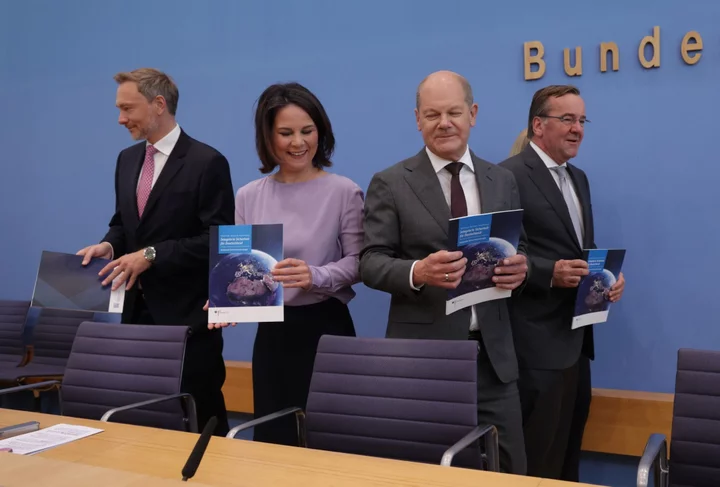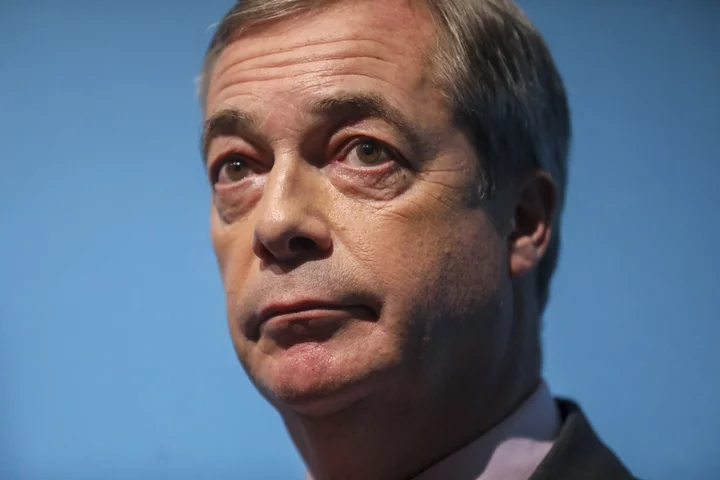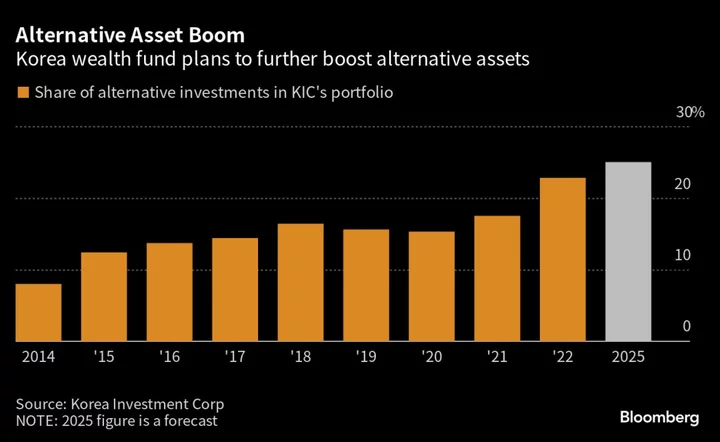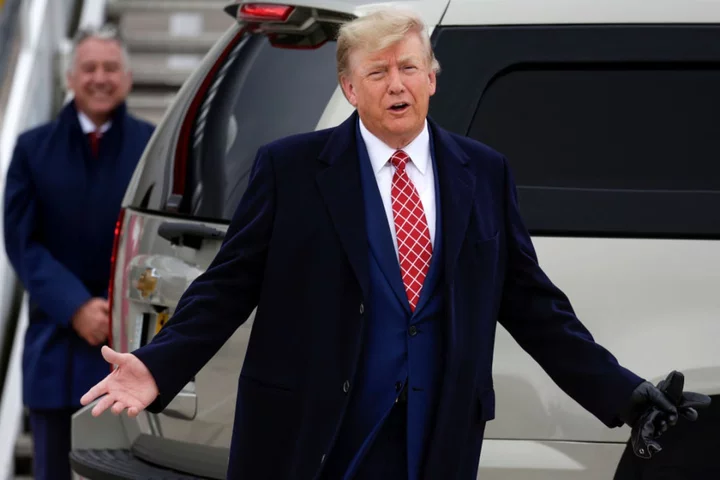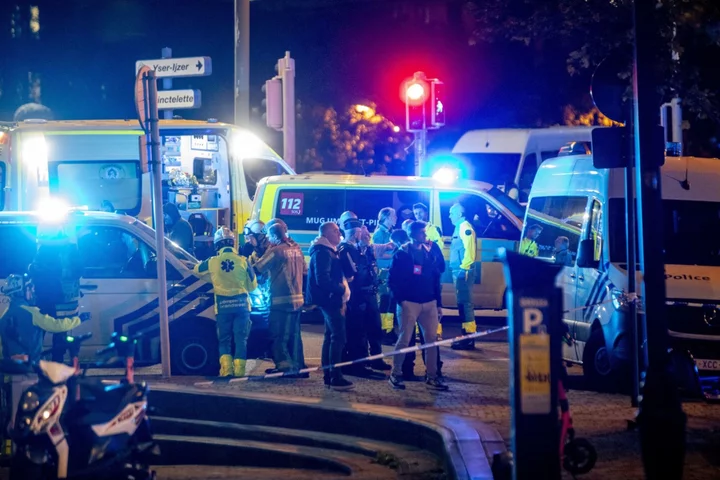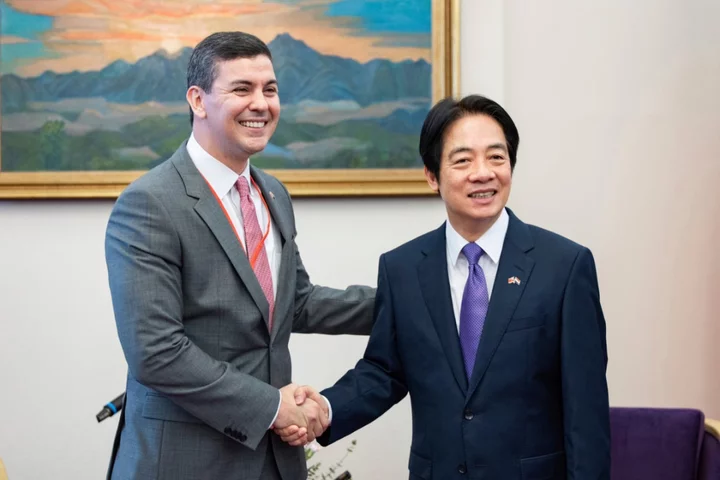Germany singled out Russia as the principle menace to its security and signaled it wants to pursue a partnership with China despite the Asian nation increasingly behaving like a rival and competitor.
In the country’s inaugural national security strategy published Wednesday, Chancellor Olaf Scholz’s government also enshrined NATO’s target of spending at least 2% of economic output annually on average on defense as an official policy goal.
“Today’s Russia is for now the most significant threat to peace and security in the Euro-Atlantic area,” the government wrote in the strategy paper, which runs to more than 70 pages and also addresses energy security and access to raw materials and technology.
On China, the government declared that “the elements of rivalry and competition have increased in recent years” while stating that the government in Beijing “remains a partner without whom many of the most pressing global challenges cannot be resolved.”
Scholz and senior ministers, including Foreign Minister Annalena Baerbock, Defense Minister Boris Pistorius and Finance Minister Christian Lindner, presented the security strategy to the media at a news conference in Berlin.
It puts some flesh on the bones of policies Scholz and members of his cabinet have referred to in recent speeches, designed to respond to what the German leader calls a geopolitical Zeitenwende — or historic turning point — triggered by Russia’s full-scale invasion of Ukraine last year.
The three members of Scholz’s alliance — his center-left Social Democrats, the environmentalist Greens and the pro-business Free Democrats — had been wrangling over the security strategy for months and opposition lawmakers have accused the government of putting party politics ahead of the country’s needs and lacking focus.
“Germany is not pursuing a strategic approach because we have no idea of who we actually want to be in this conflict-ridden world,” Norbert Roettgen, a foreign policy expert for the main opposition Christian Democrats, said Tuesday in a series of tweets.
“As a result, there will continue to be a leadership vacuum in Europe,” he added. “Because without a clear German course, Europe cannot find and consolidate its role in the world either.”
Nils Schmid, foreign policy spokesman for Scholz’s SPD, said that the new security strategy provides a “substantial basis” to anchor Germany’s foreign-policy goals and principles and called the agreement among the three coalition partners “an enormous success.”
“Russia’s war of aggression and autocratic tendencies in other parts of the world mean that we have to project ourselves outwards more robustly,” Schmid said Tuesday.
--With assistance from Chris Reiter.
(Updates with strategy details starting in first paragraph)

